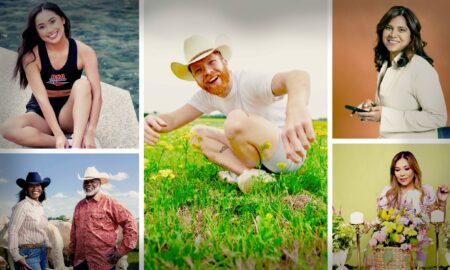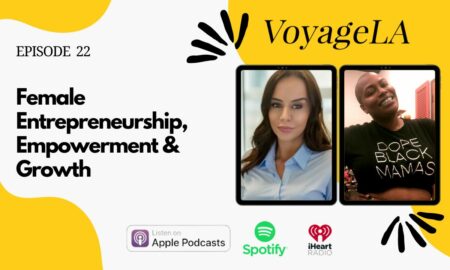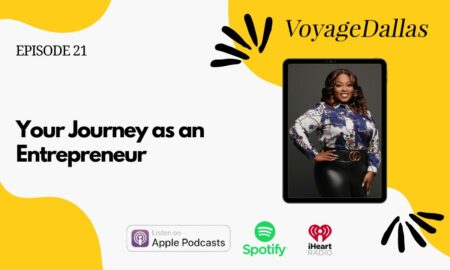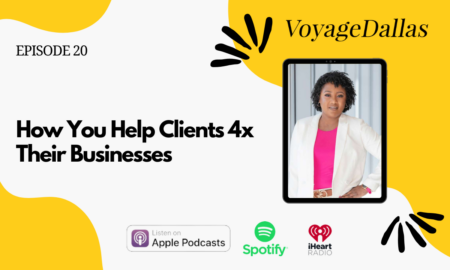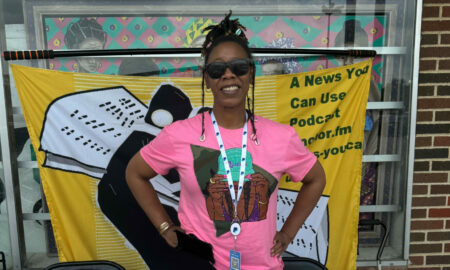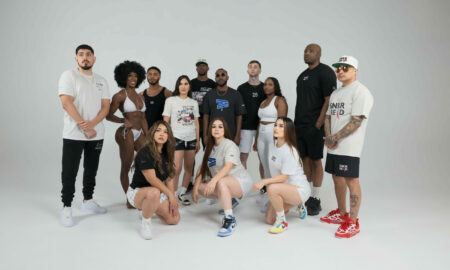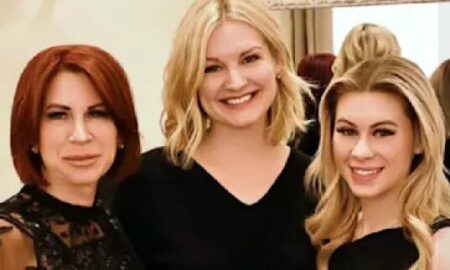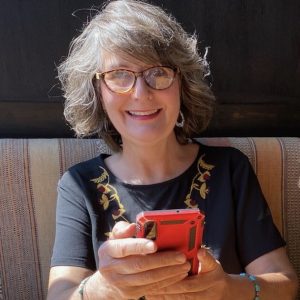
Today we’d like to introduce you to Prudence Koeninger.
Thanks for sharing your story with us Prudence. So, let’s start at the beginning and we can move on from there.
In 1996, my husband, a police officer in Highland Park, brought home a newborn baby raccoon that he had cut out of the wall of a house. We knew nothing about wildlife rehab or that there were wildlife rehabbers. We did our best and despite all, we now know we did wrong, the little raccoon lived. By the next year, I had been introduced to wildlife rehabbers when my husband brought home two older baby raccoons that frankly scared me with their growling and posturing. I began calling wildlife rehabbers in hopes that someone could take these babies. Everyone was full and turned me away.
On the last contact, I begged her to train me as I had raised one baby without knowing the correct procedure. She took me under her wing so to speak and trained me on the correct diet and husbandry. Before I knew it, she was bringing me all her raccoons to raise. Within a couple of years, the word got out and raccoons were arriving in buckets from individuals, chimney sweeps, and animal control. I found myself with 80 bottle baby raccoons and had to recruit volunteers to help with the feeding. I was also expanding my knowledge by attending national wildlife conferences. It was at one of these conferences that I was introduced to co-existence techniques, including humane eviction/exclusion, where you could keep babies with their mothers and gently encourage them to move from your attic or chimney. And because my name was out there, I was getting calls regarding all kinds of wildlife concerns where the public needed some guidance.
I problem solved and realized the message had to get to the public before they orphaned wildlife. However, how? That is when I visualized a wildlife hotline educating the public on when the rescue was appropriate, how to encourage mom to move the family, and for injured and sick, where to take the animal. I recruited a fellow rehabber and a couple of my volunteers to work together in creating the wildlife hotline. In 2003 the DFW Wildlife Coalition began operations. In our first year, we had 300 calls. Our very first call was an alligator that had been abandoned when a couple broke up. The alligator was living in a tank in the garage and the homeowner was anxious for it to be gone. Kathy Milacek, a co-founder, researched and got permission for the alligator to be relocated to a state park in south Texas. Earth Day 2003, in an orange Volkswagen, we drove the three-foot alligator to its new home. The alligator never took his eyes off us the entire journey.
The next year the hotline continued to grow with more volunteers and 3,000 calls answered. We are now 17 years old and take over 15,000 calls a year and have a volunteer base of 60. Each call is regarding at least one animal and very often maybe as many as 5 or 6 babies. Calls are generally 60% birds, 30% squirrel, opossums, cottontails, with the remaining all other mammals and reptiles. Our volunteers are so committed that we have several that have been with us from the beginning. The hotline is virtual, which allows us to have a small budget and for volunteers to work from home or wherever they need to be, including several volunteers living in other states. Working the hotline gives the volunteers from all walks of life an opportunity to make a real difference with our native wildlife. During their 2 hours shift each week, they may help a caller understand that the cottontails they found are not orphans, therefore preventing the babies from being kidnapped. The little fledgling on the ground with the birds flying and screeching at you is okay as it is learning how to fly, how to evict the mother raccoon and her babies out of your attic so that the babies are not orphaned from trapping. Where to take the hit by a car animal for care. Or perhaps calm a caller that has been fearful of a coyote or bobcat in her neighborhood. Once you educate the public and resolve unfounded fears, the public can begin to understand the importance of each animal in our eco-system of our communities and backyards.
Over the years, we have worked with the metroplex cities’ animal services by providing solutions for wildlife issues such as education and training of wildlife issues. We have been able to reduce a significant number of wild animals that were being euthanized by cities as well as reduce the use of trapping, which resulted in many animals being orphaned. We have collaborated with organizations and agencies to further educate the public on their wild neighbors. The hotline’s success paved the way for one of our volunteers to break away and open the first humane exclusion company in the metroplex. The metroplex is served by two wildlife centers for birds. However rehabilitators for reptiles and mammals are rehabbing from their homes. This makes it more challenging for the public to find these individuals. The hotline provides instructions on re-nesting to allow the wild mother the opportunity to reclaim her babies when a mishap occurs. We also provide referrals so that the correct species go to the rehabilitator that is best equipped to provide the required care. By providing this information, we work toward saving valuable time for those on the front line caring for the orphaned, sick, or injured. Twenty-four years ago, the experience of that first little raccoon inspired an amazing journey with the help of many along the way to provide a hotline for thousands of individuals to turn to when in need for a wild neighbor.
We’re always bombarded by how great it is to pursue your passion, etc – but we’ve spoken with enough people to know that it’s not always easy. Overall, would you say things have been easy for you?
Operating a non-profit is always challenging. All positions are 100% volunteer. Many times, you must wear several caps to get the job done. If a volunteer is not available, you must fill that void. You have to continually show the public that your organization is worthy of its’ support. DFW Wildlife Coalition is a virtual business so it has the challenge of creating a public image without brick and mortar.
We also have the challenge of educating the public that there are more humane ways to deal with unwanted wildlife than killing or trapping and relocating. Most importantly, trapping does not solve the long term issue. Great progress has been made to understand how to deter unwanted activity of wildlife and the importance of each animal in our environment. A common misconception is a wild animal should be taken to the country. However, just like humans, wildlife has learned that it is easier to live in the city than in the country. As wildlife adapted to urban life, we too must adapt as to how to co-exist and why we should. Through education, we remove the fear and give the public the long term solutions to their conflicts.
We’d love to hear more about DFW Wildlife Coalition.
DFW Wildlife is a unique wildlife hotline. First, it is virtual and secondly is not part of a wildlife center. The hotline was created to provide education and help for the public on urban wildlife issues. Because North Texas wildlife rehabilitators specializing in mammals or reptiles operate from their homes, it was difficult for the public to find help. The hotline provides those referrals for mammals and reptiles in need. We do refer to the two bird wildlife centers located in the metroplex. The hotline provides education on when to rescue or not. How to humanely exclude an animal to prevent orphans. Why is that wild neighbor important to our eco-systems?
It is a privilege and honor to work with so many committed volunteers that believe each caller and wild animal are worthy of their time each week. We are a business about individuals, the caller and the wild animal in need. We see the best in people taking the time to find help for an injured or orphaned animal. We love sharing solutions for those with a conflict.
What were you like growing up?
I grew up in typical middle-class home with a dog and a cat.
Contact Info:
- Website: www.dfwwildlife.org
- Phone: 972-234-9453
- Email: info@dfwwildlife.org
- Instagram: DFWwildlifecoalition
- Facebook: DFWwildlifehotline


Image Credit:
Elnaz Khoei
Suggest a story: VoyageDallas is built on recommendations from the community; it’s how we uncover hidden gems, so if you or someone you know deserves recognition please let us know here.










